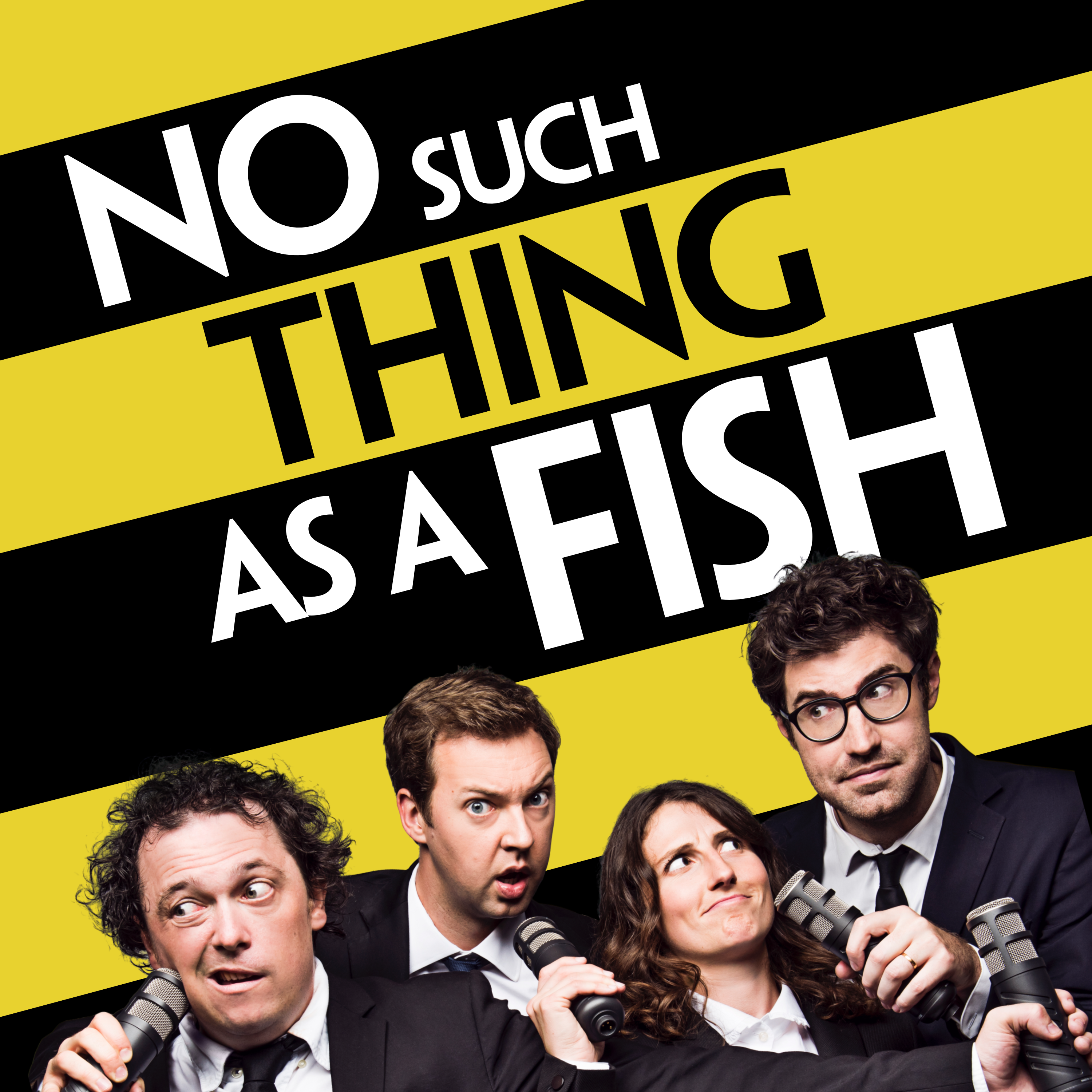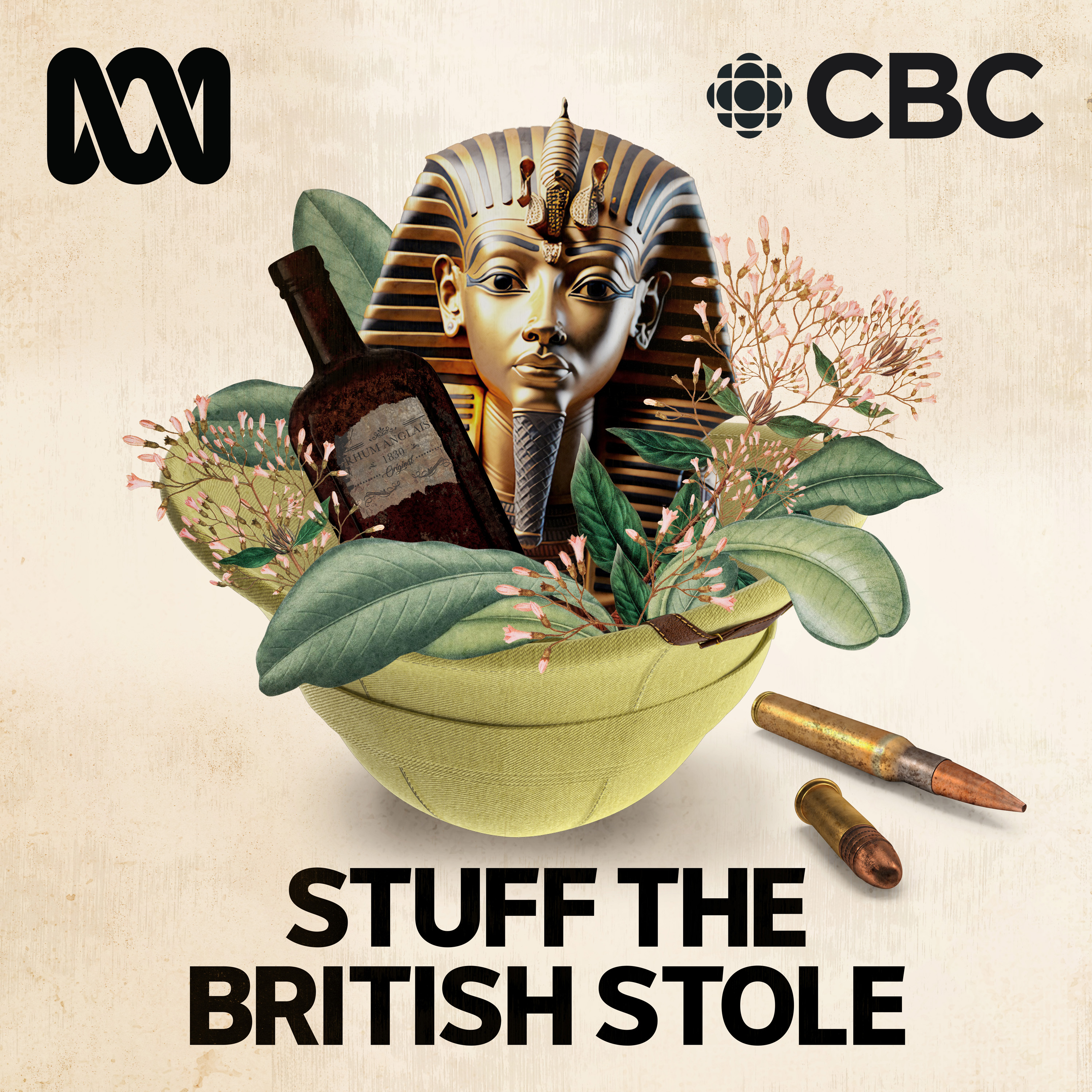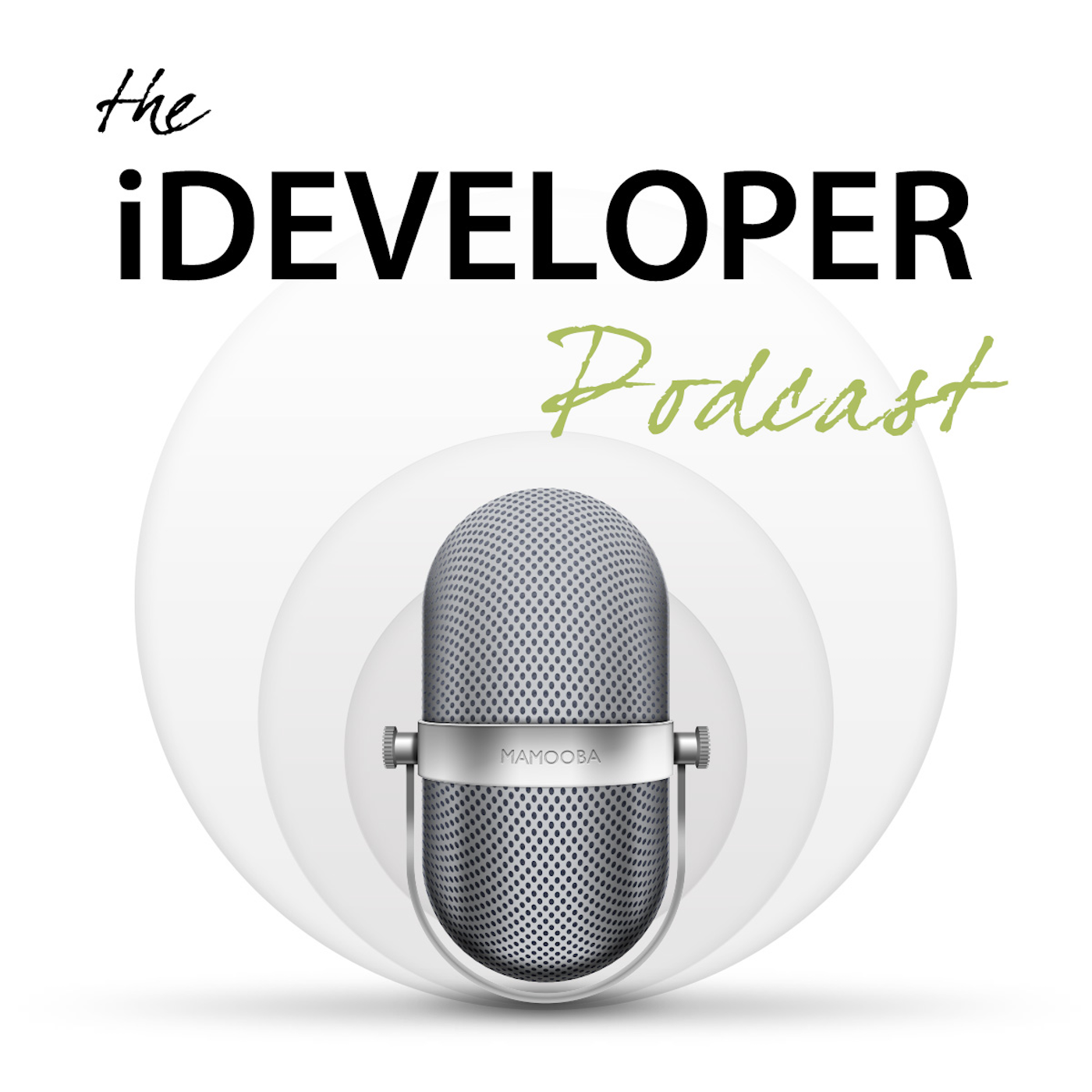
Piano, finally
Piano Finally is a podcast by an old bloke who is learning the piano, finally. I cover the process of learning the piano and music theory as an adult learner. I also review piano books, hardware and other materials from an adult learner's perspective.
Piano, finally
Episode 67 - If a Job's Worth Doing…
Episode 67 – If a job’s worth doing…
Welcome back to Piano, Finally, a podcast from an old bloke learning the piano later in life. Term three has wrapped up, and with it my piano lessons for now. Devi has me back on Wynn-Anne Rossi’s A Wild Chase, plus a new piece—Kevin Olson’s Machines on the Loose—and Juan Cabeza’s Diversion 1. Plenty to keep me busy through the break.
🎧 Podcast & YouTube – A Musical Séance
This week’s suggestion comes via Dan Schreiber’s book The Theory of Everything Else, where he recounts the story of Rosemary Brown—a spiritualist who claimed to channel new works from Beethoven, Liszt, Chopin and others. Psychologists called it unconscious composition, but the result was an album: A Musical Séance
(Spotify link). Weird, yes, but fascinating piano music.
📝 Essay – If a job’s worth doing…
Generative AI has its uses, but mainly for what’s unimportant. When a message matters, effort matters. Real music—music that communicates—isn’t just filler like hold music or AI “slop.” Corporations cutting corners with generated content reveal that they don’t care about their message. By contrast, humans crafting art signal intent, care, and communication. If a job’s worth doing, it’s worth having a real person do it. Two classic Sony ads (here’s the other) prove that effort shines through.
✏️ Review – Blackwing Pencils
For marking up scores, I’ve discovered Blackwing pencils
—beautifully made, with soft graphite, replaceable erasers, and even a two-stage sharpener. Expensive compared to standard HBs, but worth it for clear, easy writing on scores. Available locally via Sydney Art Store.
🎭 Coming Up
Next stop: Legally Blonde with the Blue Mountains Musical Society
and then the Out West Piano Fest in Bathurst.
🎼 Progress
This week’s progress is A Wild Chase by Wynn-Anne Rossi, from the Piano for Leisure, Grade 1 Series 4 book. Wynn-Anne also has her own YouTube channel. Recorded on the
You can contact me:
- via email at david@pianofinally.show; this is probably the best option
- the show website, www.pianofinally.show
- Instagram and Threads @pianofinally
- and on YouTube
- all the podcast directories - list
- here's the RSS feed
Some of the links to books and other items mentioned in the podcast may affiliate links for Amazon or other providers. If you use one of these links, a commission may be paid to me at no additional cost to you. Thank you if you use a link.
All reviews of products, websites and services are unpaid, and no sponsorship has been received for any content on this podcast.
G'day everyone, I'm David Reedy. Welcome to Piano, Finally, a podcast by an old bloke who's getting around to learning the piano, finally. Welcome to show number 67. Thank you very much for listening. If this is the first time you're hearing the podcast, I hope you enjoy what's in the show. If you're back for another episode, then thanks for returning. If you too are learning a musical let me know how you're going with it. You can contact me at david at pianofinally.show. Well, term three is over. School finished on Friday, and the term of piano lessons finished on Monday. Although I'm still playing the last four pieces occasionally, I don't want to forget them. I'm back to practicing A Wild Chase by Wynn-Anne Rossi. Devi has also given me a piece called Machines on the Loose by Kevin Olson. You'll hear most of A Wild Chase in the progress section this week, but Machines on the Loose is very much still under construction. I also have Diversion One by Juan Cabeza to have a look at too. These should keep me busy enough during the holidays. I also need to give a big thanks to someone. I don't know to whom, but the number of downloads for the podcast has more than doubled over the past week. I haven't done anything special, so I assume that someone has recommended it somewhere and people have downloaded some of the episodes. So, if that was you, thank you very much. And if you're a new listener to the show from that recommendation, then you're very welcome. This week's suggestion comes about via a fairly complicated path. I listen to half a dozen or so podcasts each week, and one of my favourites is No Such Thing As A Fish from the BBC. The four regular hosts of the podcast are the team that does the research for the television program QI. I've been watching QI for many years and listening to No Such Thing for almost as long. If you enjoy obscure and sometimes dubious facts, then I'd recommend both the podcast and the TV series. One of the hosts on No Such Thing is Dan Schreiber, who grew up in the same part of Sydney as I did, although a few decades later. He has another podcast, We Can Be Weirdos, which I've mentioned before on the podcast. It's a bit more out there than fish, and is also worth a listen if you're open to some strange ideas. Dan also writes books and I am listening to one of them The Theory of Everything Else on Audible This week's suggestion comes from that book See, told you it was a See, I said it was a complicated path In his book Dan explores lots of weird theories and explanations that verge on the very much pseudo side of science Dan approaches them in a non-judgmental way Dan approaches them in a non-judgmental way but as a scientist I think most of them are really good evidence that there are some very strange people about One story is about a woman called Rosemary Brown Rosemary Brown composed music although she would disagree with that description Mrs Brown claimed that it was not she who was composing the music she was just acting as a medium for others and writing the music down. In this case, the word medium is quite appropriate, as the people who were actually composing the music were Beethoven, Liszt, Chopin, and a number of other dead composers. Mrs Brown claimed to be a spiritualist. Mrs Brown had worked for the post office from the age of 15, and although she only spoke English, fortunately, the spirits of Bach and the other composers had had time to learn English since their passing. They also had time to keep up with musical trends, as many of their new works had elements that were certainly inspired by the music of the 1960s. Much of the music Mrs Brown produced was received well by musicians, some of whom believed her explanation. Psychologists have explained it as unconscious composition or perhaps a multiple personality disorder. There is no suggestion that Mrs Brown was trying to scam anyone and almost certainly she believed she really was channeling and speaking with the composers. There is an album of Mrs Brown playing some of the music. It's called A Musical Seance and it contains 17 tracks of piano music. Track 10 is a recording of Mrs Brown herself explaining the music and her relationship with the composers as well as how they communicated their music to her. The Apple is available. The album is available on Apple Music and on Spotify and there are links in the show notes. This is an interesting, slightly weird adventure in piano music and it's worth having a listen. If a job's worth doing. I was listening to a piano podcast the other day where the host was talking about getting the fairly large music school she manages ready for the upcoming school year. The school is in the United States, so I assumed that the episode was recorded a while ago. She was saying there are a lot of small jobs that need to be done, including sending out messages to students and parents. In this context, she was talking about using chat GPT to help with getting everything written, but only for the tasks that were unimportant. And that got me thinking about using generative AI in general and why I think that its use is not going to replace the work of artists in the way that some people are predicting. The key is in that word, unimportant. Generative AI is quite good at doing things that are unimportant, but not quite so good when there is actually value in doing something. So, who decides if something is unimportant? Normally, it's the receiver. It doesn't really matter how important the sender of a message or material thinks it is. If the receiver doesn't see any value, then it's likely to be ignored. One of the things my students like to point out is the number of unread emails I have in my inbox. Try as I might, there are always a lot of unwanted messages, regardless of how many mailing lists I unsubscribe from. I let them mount up during the year and then remove them each January. The current count is a little over 27,000. These are unimportant emails. They're not in my main work account, but the email account I've been using for more than 20 years. And of course they're not the Piano, Finally account, although that is starting to pick up its own spam collection. I'm assuming that if someone is sending me a message, they want me to read it. They would like me to consider it important enough to spend some time going through it. But if it's not important enough for them to put the effort into writing it themselves, then why should I put the effort into reading it? And this is where I see hope for AI and musicians. If a corporation can't put the effort into having a real person compose music or create an artwork, then why should I put any effort into paying attention to them? Leaving aside the problems that can arise when someone is attempting to deceive using generated material, I see mostly two uses for what I'm going to call broadcast AI. By broadcast AI, I mean material that is being made to be widely distributed without there being an existing relationship between the sender and the receiver. Think mass media marketing. Firstly, there is the material that is becoming known as AI slop. Material that is meant to be briefly entertaining in an attempt to drive up engagement. I think most people recognise this and will discount its importance. Given that the amount of work that goes into generating this material is minimal, it is good to see some of the platform providers making sure that it doesn't generate revenue. And as the only point of a lot of this material is to get clicks to make money, the removal of that incentive will see it disappear, I hope. Much as I don't like putting my trust in corporations such as Google and Alphabet slash Meta, who have not been the most open, ethical or transparent of organisations, I see this move against AI slop as one of the reasons to hope that we are not going to see music composition replaced by generative algorithms. At least not the composition of real music. And what do I mean by real music? Music that isn't meant to just fill the silence. The very worst version of not real music is the music you get if you're on hold on the telephone. Now, it's preferable to constant ads about other services that your bank or insurance company might offer, but I doubt there is anyone who rings up hoping to get 20 minutes or so to listen to the hold music. So I think of real music as the music you make an effort to go and hear, to hear for the music itself, not even just as a beat to support dancing. Real music, music that has been composed to communicate. An AI system might be able to generate a convincing and even pleasant sounding piece of music, but it's not able to generate a message worth communicating. And that means it is not able to generate a message worth listening to. Will generative AI end up making music to back advertisements? Probably, but as I try to avoid as much advertising as I can, and I know many others tune out if they can't avoid it, I really won't be listening to it. Will I think there's a company that can't be bothered to put the effort into making a message? Probably. I like Sony products. They're well made, but the company also made what I think are two of the best advertisements ever. The effort that went into making them, the thought that went into the message, makes them both worth watching. It makes me think that if they care that much about their message, they probably care just as much about their products. Both the advertisements are from a time well before AI, but I am sure no algorithmically generated work could match them. I'll link them in the show notes. And there is the hope. As long as people care about communicating, there will be a place for genuine musicians and genuine composers. And as AI-generated material becomes a sign that the company or person using it doesn't really care about their message, its use will decline, at least I hope so. If a job's worth doing, it's worth having a real person do it. If I'm using a printed version of a score, then I'm going to mark it up with a pencil. At the moment, I often add finger numbers or chord reminders to the score, and often something to call out the dynamics I otherwise skip over. Why pencil and not pen? I might change my mind and need to alter something, or if I ever get around to doing a piano exam, which is not really likely, all the markings on the score have to be removed. So if I'm going to use a pencil, I want a nice pencil, and I think I've found the best pencil for marking up a score. pencils from Blackwing. I first heard about these on Carlos Lalonde's YouTube channel where he listed them as essential equipment for a composer. I still do a lot of handwriting so I have always been interested in pens and pencils. Generally I use Twisby fountain pens when I need to use ink but I don't have a preferred pencil. I was able to find some Blackwing pencils at the local stationery shop and to give them a try. They're really good. They're also really expensive. The pencils I give out to students in class cost about 60 cents each. They're a reasonable quality HB pencil and normally they give them back at the end of the lesson, mostly unchewed. Blackwings, on the other hand, cost $5.85 each, so I'm not handing them out. But are they worth it for my own use? Yes, they are. The pencils don't have the normal H and B grades. Instead, Blackwing just have different coloured paint on the outside. The idea is to find the pencil that suits you best, and then stick with that. I bought one of each, and have found the grey or black ones work best for me. The graphite in the pencil, yes, it's real graphite, not the synthetic type that is in cheaper pencils, is quite soft when writing. But I haven't had a problem with the points breaking by being too soft. The softness of the graphite means it is really easy to write on a score which is likely to be sitting up on a music stand rather than laying flat on the desk Clearly legible marks take very little pressure Each pencil also has a rubber eraser on the end and these are replaceable with different hardness alternatives There's even a two-stage sharpener that Blackwing sells so you can get the perfect point every time The first part of the sharpener works on shaping the wood and then the second part puts a point on the graphite. It's a bit more work, but you do get a perfectly sharpened pencil. Another benefit of doing the sharpening this way is the Japanese cedar wood that the body of the pencil is made from. It smells great when you sharpen it. These are an expensive add-on to your music equipment, but honestly it's not as if you need to buy many pencils and I think that having a few of these is just a nice way to add to the pleasure of learning to play. I'm heading up to Queensland tomorrow to visit family for the holidays I'm intending to record the podcast as normal next weekend while I'm away but anything might happen so don't be concerned if the show is running late The banners for the Blue Mountains Musical Society's next production have started going up on the road bridges across the highway It's Legally Blonde and it will be playing from the 18th of October to the 2nd of November at Springwood I'll put a link in the show notes I've already got a ticket for the Sunday matinee on the 19th of October The following weekend will be the Out West Piano Fest in Bathurst Three days of piano music I'm looking forward to that one If you'd like to contact me, email is the best way you'll find me at david at pianofinally.show and the website at www.pianofinally.show. In both cases, Piano, Finally is all one word. The show is also on Spotify and available as audio only on YouTube. You can subscribe via any popular iOS or Android podcast application or from directories such as Apple Podcasts, Spotify or YouTube. I also post an excerpt and link for each episode as an Instagram Reel. If you're learning an instrument, let me know where you are in your journey. What's going well, and what are the challenges? How are you managing your time? So, until next week, I hope your piano stays in tune, and you enjoy your time at the Keys. This week's progress is just the one piece. A wild chase by Wynan Rossi. Wynn-Anne is a composer and educator with over 150 publications for piano and other instruments. This piece is from the Piano for Leisure Grade 1 Series 4 book from AMEB. It's missing the last four bars, although it sounds like there's an ending where I stopped. The final bars aren't difficult, I just haven't got around to practicing them as much. If you're interested, Wynn-Anne has her own YouTube channel, and I'll put a link in the show notes. The music was recorded using the Kawai NV10 as the keyboard, and the M4 Pro Mac Mini running Cubase and Pianoteq 8, emulating the Shigeru Kawai SK-EX Grand Piano in classical recording mode. Thank you.
Podcasts we love
Check out these other fine podcasts recommended by us, not an algorithm.

Connected
Relay
Upgrade
Relay
No Such Thing As A Fish
No Such Thing As A Fish
We Can Be Weirdos
Global
Stuff The British Stole
ABC and CBC
The iDeveloper Podcast
Steve Scott (Scotty) & John FoxRaven On: A Pop Culture Podcast
Natalie Bochenski & Stuart Layt
Smart Enough to Know Better
Dan Beeston & Greg Wah
TopMusic Piano Podcast
Tim Topham
The Chopin Podcast
Garrick Ohlsson and Ben Laude



